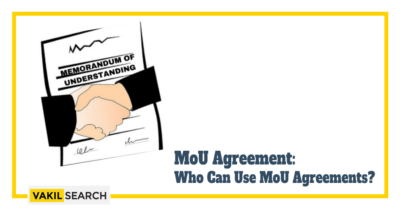Learn how to write a comprehensive and effective Business Memorandum of Understanding (MOU) with these simple steps. Outline the purpose, identify parties involved, include terms of agreement, add dispute resolution, legal considerations, and finalize with signatures. Get started now!
A Memorandum of Understanding (MOU) is a legally non-binding agreement between two or more parties that outlines the terms and conditions of a partnership or collaboration. In the business world, an MOU is often used to establish a framework for future negotiations and agreements or to formalize a business relationship in a way that sets expectations and responsibilities. Let us discuss about How to write business Memorandum of Understanding, its importance and what happens when you don’t write a MoU.
Steps to Write Business Memorandum of Understanding
Here are the steps to help you Write Business Memorandum of Understanding that is comprehensive and effective:
- Identify the purpose of the MOU: Before you start to Write Business Memorandum of Understanding, you need to determine the purpose of the MOU and what you want to achieve through it. This will help you focus your writing and ensure that all relevant details are included.
- Identify the parties involved: Make a list of all the parties involved in the MOU, including their names and addresses. This will help ensure that everyone is aware of who is responsible for what and will make it easier to refer back to the MOU in the future.
- Outline the terms of the agreement: This is the most important section of the MOU, and you should take your time to carefully craft it. Include all relevant details such as the duration of the agreement, the responsibilities of each party, any compensation or benefits, and any other important terms and conditions.
- Include a clause for dispute resolution: Disputes are a common occurrence in business, so it is important to include a clause in the MOU that outlines the process for resolving disputes. This could involve mediation, arbitration, or other forms of dispute resolution.
- Add any legal considerations: Depending on the nature of your business and the type of agreement you are making, there may be legal considerations that need to be addressed in the MOU. For example, you may need to include clauses related to confidentiality, intellectual property, or liability.
- Review and revise: Once you have drafted the MOU, it is important to review it carefully and make any necessary revisions. This may involve getting feedback from others involved in the agreement or consulting with a legal professional to ensure that the MOU is comprehensive and accurate.
- Sign and finalize: Once the MOU has been reviewed and revised, each party should sign and date the document. You should also make several copies of the MOU for each party involved and keep them in a safe place for future reference.
In summary, an MOU helps to ensure that all parties are on the same page, protects their interests, and lays the foundation for a successful working relationship.
Why Should You Write Business Memorandum of Understanding?
A Memorandum of Understanding (MOU) is a written agreement between two or more parties to outline the terms and details of a working relationship. It is important for a business to write an MOU for the following reasons:
- Clarifies Expectations: An MOU defines the expectations and responsibilities of each party, reducing the potential for misunderstandings and disputes.
- Establishes a Working Relationship: An MOU can help establish a clear working relationship between the parties involved, setting the stage for a successful partnership.
- Protects Interests: An MOU can help protect the interests of all parties involved by setting out clear terms and conditions.
- Facilitates Communication: An MOU provides a clear and concise understanding of the relationship, making communication easier between the parties.
- Evidence of Agreement: An MOU serves as a written record of the agreement between the parties and can be referred to in the future in case of any disputes.
What Happens If You Don’t Write Business MoU?
If a business does not write a Memorandum of Understanding (MOU), it can result in the following consequences:
- Misunderstandings: Without a clear agreement in writing, there may be misunderstandings about the expectations, responsibilities, and obligations of each party.
- Disputes: In the absence of an MOU, there may be disagreements about the terms of the relationship, leading to disputes and potentially damaging the relationship.
- Lack of Clarity: Without an MOU, there may be confusion about the scope of the relationship, the objectives, and the responsibilities of each party.
- Lack of Legal Protection: An MOU can serve as a legal document that can be referred to in case of disputes, but without an MOU, the parties may not have any legal protection in the event of a dispute.
- Inefficient Communication: Without a clear agreement, it may be difficult to communicate effectively and efficiently between the parties.
In conclusion, if you don’t Write Business Memorandum of Understanding it will result in misunderstandings, disputes, lack of clarity, lack of legal protection, and inefficient communication, which can ultimately harm the working relationship.
Conclusion- Write Business Memorandum of Understanding
A business MOU is an important document that can help establish and formalize business relationships. By following these steps and carefully considering the terms and conditions of the agreement, you can Write Business Memorandum of Understanding that will serve as a valuable tool in your business dealings.
Also, Read:










